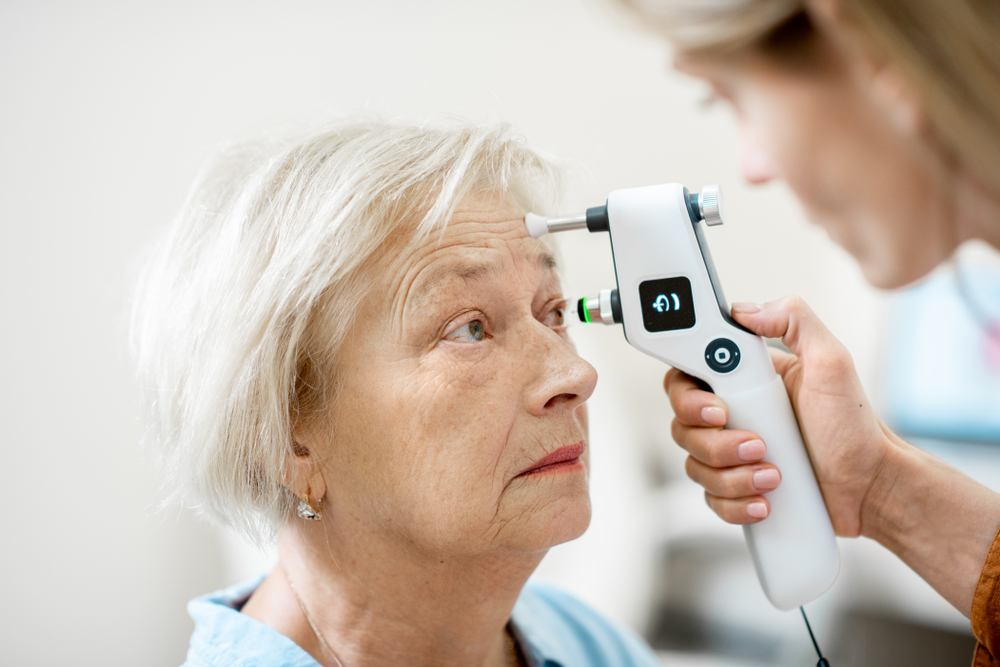
Listen to Cataract Surgery Article in Podcast Form
Cataracts are one of the most common causes of vision impairment in older Australians, according to the Australian Institute of Health and Welfare. Over time, the lens of the eye becomes cloudy, making it harder to see clearly. It’s a gradual process, but it can significantly affect your quality of life. Things like reading, driving, or even recognising faces can become a lot more difficult.
The good news is that cataract surgery is a safe and effective treatment that restores vision for most people. But while the surgery itself is straightforward, understanding the costs and knowing what’s covered under Medicare or private health insurance for seniors isn’t always as clear. Some people may be eligible for free cataract surgery, while others could face unexpected out-of-pocket expenses depending on where and how they’re treated.
In this guide, we’ll walk you through how cataract surgery works, what it typically costs, and how Australian seniors can access free or low-cost cataract surgery – whether through the public system, private health cover, or additional support programs.
Understanding Cataracts
Cataracts are a common eye condition that develop gradually as we age. They occur when the lens of the eye becomes cloudy, making it harder to see clearly. While cataracts can affect anyone, they’re particularly common in older adults and are one of the leading causes of vision impairment in seniors.
Common Symptoms of Cataracts
If you have cataracts, you might notice:
- Blurry or cloudy vision
- Sensitivity to light or glare
- Difficulty seeing at night
- Colours appearing faded or yellowed
- Frequent changes in your glasses prescription
These symptoms often develop slowly, which can make them easy to overlook. But over time, they can start to affect your ability to do everyday tasks comfortably and safely.
Impact on Quality of Life
For older Australians, cataracts can have a real impact on quality of life. They can make reading, driving, or navigating new environments more challenging. In some cases, untreated cataracts can increase the risk of falls or lead to a loss of independence.
Thankfully, cataracts are treatable with surgery, which is a safe and effective option that can restore vision and help you stay active and independent. And for many seniors in Australia, cataract surgery may be free or significantly reduced in cost, depending on your situation and cover.
Cataract Surgery Overview
Cataract surgery is one of the most common and successful procedures performed in Australia, especially for seniors. It’s a simple operation that can have a big impact on daily life, helping people see more clearly, move around more safely, and stay independent for longer.
What Happens During Cataract Surgery?
The procedure is relatively quick and straightforward. A specialist eye surgeon removes the cloudy lens from your eye and replaces it with a clear artificial one.
It’s usually done under local anaesthetic, meaning you're awake but the eye is numb, and most people go home the same day.
The surgery itself usually takes about 20 to 30 minutes per eye, and if both eyes are affected, they’re typically treated a few weeks apart.
Benefits of Cataract Surgery
The main benefit of cataract surgery is improved vision, and for many people, the results are noticeable almost immediately.
After surgery, colours may look brighter, vision becomes sharper, and tasks like reading, driving, and walking around feel easier and safer.
These improvements can also boost confidence and independence, especially for older adults who’ve been struggling with poor vision for a while.
Potential Risks of Cataract Surgery
All surgery carries some risk, and cataract surgery is no exception. While serious complications are rare, they can include infection, swelling, or issues with the artificial lens. However, the procedure is considered very safe, and it’s frequently performed in both public and private settings across Australia.
Cost of Cataract Surgery in Australia
The cost of cataract surgery in Australia varies depending on how and where you receive treatment. While Medicare helps with part of the cost, your out-of-pocket expenses will depend on whether you’re treated as a public or private patient, and whether you have private health insurance.
Cataract Surgery Cost in the Private System
For people treated as private patients, the typical cost of cataract surgery includes a few main components: the specialist’s fee (which covers the surgeon, anaesthetist, and any assisting doctors), the hospital or day surgery facility, and any additional tests or follow-up care.
According to national data from 2022–23, the total specialist fee for cataract surgery in a private setting averages around $2,000. Of this amount, Medicare usually pays about $780, and private health insurance typically covers around $830. That leaves the patient with an average out-of-pocket cost of $450 – though this can be higher or lower depending on the surgeon and your level of cover.
Hospital costs are separate. The fee for accommodation, use of the operating theatre, and the lens implant usually comes to about $2,400. In most cases, your health fund will pay for all or most of this, depending on your policy. You may still need to pay an excess or co-payment if it applies.
There may also be smaller, additional costs like pre-surgery consultations, follow-up appointments, or optional upgrades to premium lens implants. These are worth checking in advance, as not all are covered under standard policies.
Free Cataract Surgery for Seniors
For seniors who are treated in the public system as public patients, cataract surgery is fully covered by Medicare. That means no cost for the procedure, no hospital fees, and no out-of-pocket payments – provided you're happy to be treated in a public hospital.
You’ll need a referral from your GP or optometrist to get onto the public hospital list, and waiting times can vary depending on where you live. In some parts of the country, you could be waiting several months or longer.
Understanding the difference between public and private cataract surgery (and what’s covered in each setting) can help you make a decision that suits your budget and timeline.
If you're unsure about your current private health cover or whether cataract surgery is included, it's a good idea to speak to your health fund or use a trusted comparison service to get a clearer picture.
Health Insurance and Cataract Surgery
If you’re thinking about having cataract surgery done privately, health insurance can make a big difference to what you pay, and how soon you can have the procedure. But the type of cover you have and the fine print of your policy can affect what’s included and what isn’t.
How Hospital Cover Helps
Cataract surgery is classed as an inpatient procedure, so you’ll need hospital cover to claim for it through private health insurance. Most Silver Plus or Gold hospital policies include coverage for eye surgery (including cataracts), but some Basic or Bronze policies don’t. It’s important to check that “cataracts and eye lens procedures” are listed under your policy’s covered clinical categories.
Hospital cover can help pay for things like your:
- Surgeon and anaesthetist fees (after the Medicare portion)
- Private hospital or day surgery costs
- Artificial lens (intraocular lens implant)
Keep in mind that most policies include an excess – generally between $250 and $750 – which you’ll need to pay if you’re admitted to hospital.
What About Extras Cover?
Extras cover is generally for out-of-hospital services like dental, optical, or physiotherapy. Cataract surgery itself isn’t covered by extras. However, extras cover may help with prescription glasses or lenses after surgery..
Waiting Periods and Other Limits
If you’ve just taken out private health insurance or upgraded your hospital cover to include cataract surgery, you’ll need to serve a 12-month waiting period before you can claim for the procedure. This is standard across most funds, especially for pre-existing conditions like cataracts.
Some policies also come with annual limits or restrictions on how often you can claim for specific services, although this is less common with hospital cover for surgical procedures.
Coverage Can Vary by Fund and Policy
Even within the same tier (like Silver Plus or Gold), different funds may offer slightly different benefits. Some may include gap cover arrangements that reduce your out-of-pocket costs. Others might offer additional support, like programs that help coordinate your care or fast-track access to certain hospitals.
If you're unsure about what’s included in your current policy, or you're thinking of switching funds, it’s worth taking the time to compare your options. That way, you’ll know exactly what you’re covered for, and what you might still need to budget for.
Free Cataract Surgery Options for Seniors
For older Australians, free cataract surgery is available through the public health system, and for many, it’s an affordable and accessible way to get the care they need.
Public Hospital Surgery Through Medicare
If you're treated as a public patient in a public hospital, the full cost of cataract surgery is covered by Medicare. That includes your surgeon’s fees, hospital stay, the artificial lens, and any anesthetics required for the procedure.
To access surgery this way, you'll need a referral from your GP or optometrist. Once you're referred, you’ll be placed on your local public hospital's waiting list for an assessment and, eventually, surgery.
Who’s eligible?
All Australian residents with a Medicare card can access cataract surgery through the public system, but priority is usually given based on how much your vision is affecting your day-to-day life. Seniors with more severe impairment, or those at greater risk of falls or injury due to vision loss, may be prioritised.
One important consideration is waiting times. These can vary widely depending on your state or region. In some areas, you may wait just a few months; in others, it could be over a year.
Community and Non-Profit Assistance Programs
For seniors who may not have private health insurance (or who live in areas where public hospital wait times are long, community assistance programs can be another way to access affordable or even free cataract surgery.
These programs are often run by not-for-profit organisations, charitable foundations, or government-backed outreach services, and they’re typically designed to support people who:
- Live in rural or remote areas
- Identify as Aboriginal or Torres Strait Islander
- Are experiencing financial hardship
- Face barriers to accessing mainstream health services
Depending on where you live, support might include fully funded cataract procedures, assistance with travel to appointments, or coordination of care through local health services.
Certain government programs, such as the Department of Veterans’ Affairs (DVA) and the National Disability Insurance Scheme (NDIS), may provide coverage for cataract surgery for eligible individuals. Programs vary by state and region, so availability and eligibility requirements can differ. Some may focus on delivering services in specific communities or to those with the greatest need.
If You’re Not Sure Where to Start…
- Speak with your GP or optometrist – they can advise on your referral options for public treatment
- Contact your local hospital’s outpatient clinic to ask about waiting times and eligibility
- Reach out to community health centres or non-profit organisations for additional support, especially if you’re living in a rural or regional area
Cataract surgery is a life-changing procedure, and for seniors who meet the criteria, there are no-cost options available through Medicare. While private surgery offers speed and choice, public treatment provides a safe, effective treatment without the financial pressure.
Comparing Health Insurance Plans for Cataract Surgery
If you're considering going private for your cataract surgery, choosing the right health insurance can make all the difference – not just in what you pay, but how soon you’re treated and where. But with so many policies out there, it can feel a bit overwhelming. The key is knowing what to look for, and what to ask.
Start by checking if the policy actually includes cataract surgery—not all do, especially at the Basic or Bronze level. Look for Silver Plus or Gold hospital cover, and make sure “cataracts and eye lens procedures” are listed as an included clinical category.
When you're comparing, it helps to ask:
- Does this policy cover cataract surgery in full, or will there be out-of-pocket costs?
- Which hospitals or day surgeries can I use under this plan?
- Are there waiting periods, and if so, how long?
- What’s the excess I’d need to pay if I’m admitted?
- Is there a no-gap or known-gap scheme for eye surgery?
If you’re not sure where to start, a health insurance comparison service like Health Deal can walk you through the options and help match a policy to your needs. The right plan doesn’t just save you money; it can also make the whole process smoother, faster, and less stressful.
Ways to Save on Cataract Surgery Costs
Cataract surgery can make a big difference to your quality of life, and with the right approach, it doesn’t have to come with a big price tag. One of the easiest ways to save is by comparing health insurance policies.
Not every hospital policy covers cataract surgery, and even among those that do, the out-of-pocket costs can vary a lot. Using a comparison tool like Health Deal can help you find a policy that suits your needs and budget.
It’s also smart to shop around for prices, asking surgeons for a full breakdown of costs before you commit (including fees for the procedure, anaesthetist, and any hospital charges). That way, you’ll know exactly what to expect and can check how much your health fund will cover.
Wrapping Up
Cataract surgery can make a big difference to your quality of life, and with the right approach, it doesn’t have to come with a big price tag. One of the easiest ways to save is by comparing health insurance policies.
Not every hospital policy covers cataract surgery, and even among those that do, the out-of-pocket costs can vary a lot. Using a comparison tool like Health Deal can help you find a policy that suits your needs and budget.
It’s also smart to shop around for prices, asking surgeons for a full breakdown of costs before you commit (including fees for the procedure, anaesthetist, and any hospital charges). That way, you’ll know exactly what to expect and can check how much your health fund will cover.
Compare Cataract Surgery with Confidence with Health Deal
If you're not sure which private health insurance policy is right for your cataract surgery needs, Health Deal can help take the guesswork out of the process. Our free insurance comparison tool allows you to explore hospital cover options side by side so you can see which policies include cataract surgery, what’s covered, and how much you might save. Looking for personalised advice? You can speak with a Health Deal insurance specialist who’ll walk you through your options, answer your questions, and recommend policies based on your age, budget, and healthcare needs. Call 1300 369 399 or email enquiries@healthdeal.com.au.
Disclaimer
This guide is for informational purposes only and should not be taken as medical or financial advice. Health Deal is proud to partner with a range of health insurance providers. While we strive to provide accurate and up-to-date information, health insurance policies and benefits may change. Always check with a financial professional before making any decisions. Health Deal compares selected products from a panel of trusted insurers but does not compare all products in the market. Before signing up for any policy, make sure to read the Product Disclosure Statement (PDS) and check the fund’s official website for the most up-to-date information. For the most current information, please refer to your chosen health fund’s official website or speak with one of our health insurance experts.


 Single
Single Couple
Couple Family
Family Single Parent
Single Parent